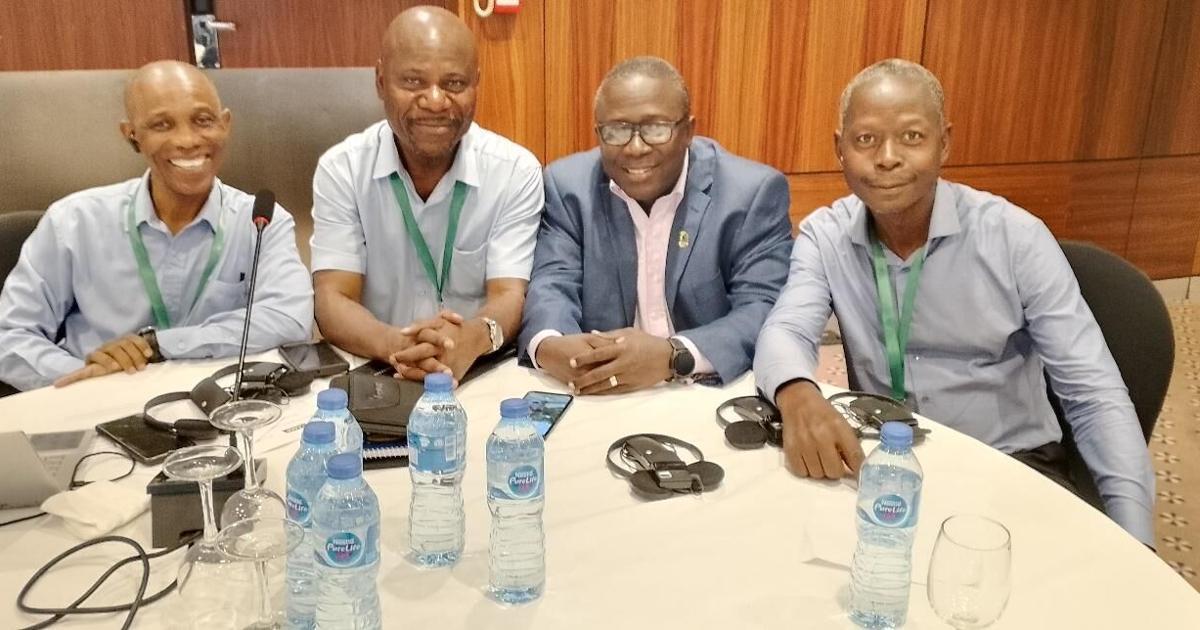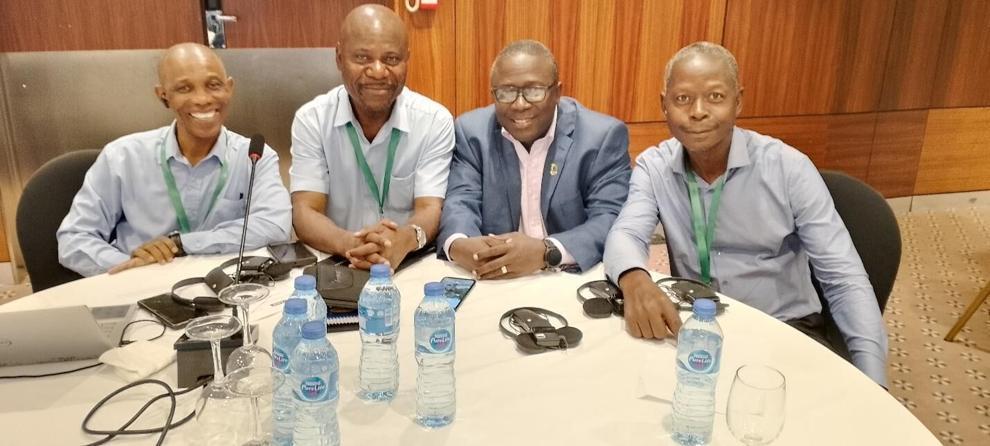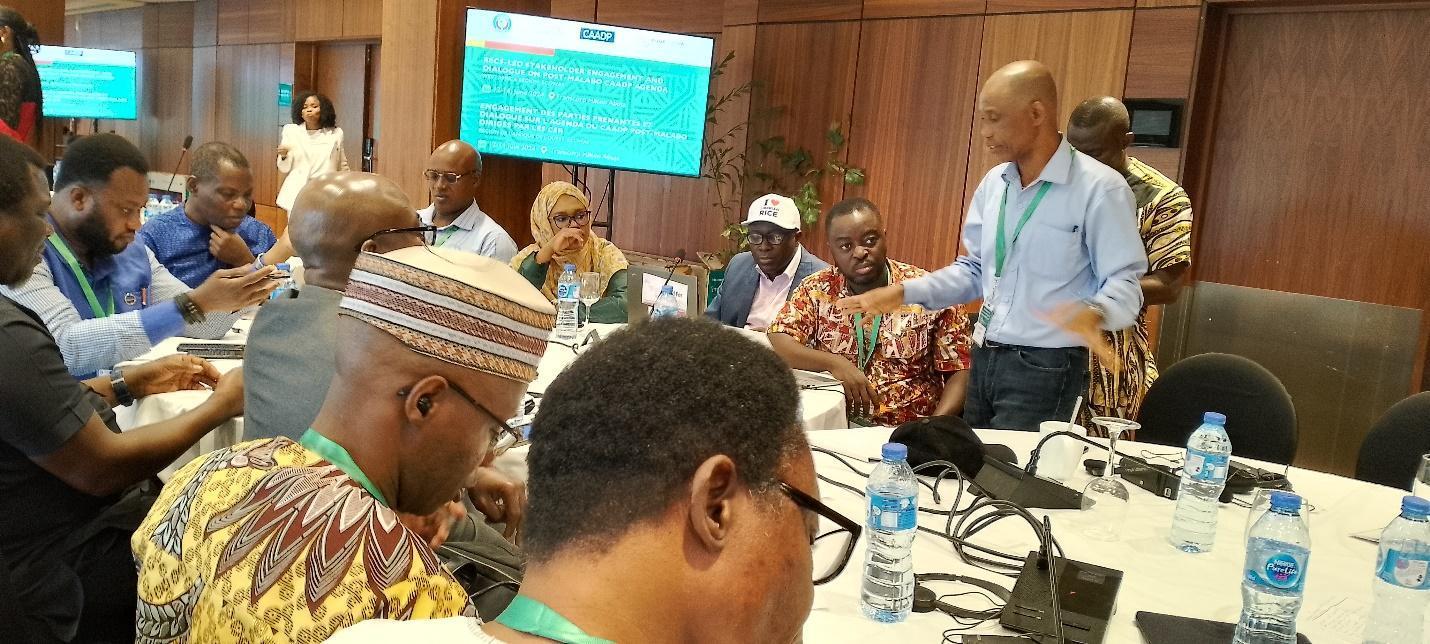Africa-Press – Liberia. Stakeholders, including Mr. Jlopleh Dennis Wiagbe, Mr. Jones Dennis, Rev. Robert Bimba, and Mr. Judoemue Kollie, have returned to Liberia after the successful conclusion of the recent Post Malabo Regional Stakeholders Consultation meeting.
The stakeholders represented the Liberian government, as well as the country’s private sector, media, and civil society organizations.
The meeting was held in Abuja, Nigeria from June 12 -14, bringing together experts from across the West African region in the areas of agriculture, research, academia, policy-making, development partners, the media and civil society organizations, and youth organizations.
It sought to mobilize stakeholders from across the West African region views and proposals on the next ten-year agriculture agenda for the continent for adoption by ECOWAS and the African Union.
Several thematic areas including agriculture and economic transformation, competitiveness and trade, challenges and future of agriculture, food systems and the Comprehensive Africa Agriculture Development Program (CAADP) targets, technological advancements, efficiency, market and processing, among others were pertinent issues participants brainstormed and proposed solutions or recommendations that could move the African continent forward.
C:\Users\USER\Downloads\IMG_20240614_123408_789.jpg
According to the report, the Maputo Declaration, a seminal moment in Africa’s agricultural development, was crafted in 2003 as part of the CAADP. The framework was developed as the result of the persistent challenges confronting African agriculture. The declaration emerged under the stewardship of the New Partnership for Africa Development (NEPAD) and the African Union (AU). This pivotal declaration garnered support from African heads of state and government, acknowledging the indispensable role of agriculture in driving economic growth and poverty reduction across the continent.
Rooted in the recognition of decades of neglect and underinvestment in the agricultural sector, the Maputo Declaration ambitiously set targets, including the allocation of a minimum of 10% of national budgets to agriculture and achieving a 6% annual agricultural growth rate. The declaration aimed to catalyze sustainable agricultural transformation, fortify food production, and enhance food security continent-wide.
Moreover, it sought to foster policy coherence, increase investment in rural infrastructure and agricultural research, and encourage private-sector engagement.
The subsequent Malabo Declaration of 2014 reaffirmed Africa’s commitment to agricultural growth and transformation, emphasizing the imperative of sustained investment and coordinated action.
Despite these affirmations and pledges, two decades later, progress remains slow, with Africa still grappling with severe food insecurity and malnutrition.
According to recent data, nearly 30% of the African population suffers from chronic undernourishment, while the continent continues to import a significant portion of its food.
The CAADP 4th Biennial Assessments underscored the persistence of challenges, revealing insufficient progress and neglect of the African agricultural system.
Despite some advancements, significant challenges persist after two decades of CAADP implementation, as revealed by the Biennial Review Reports.
These reports highlight that most countries are still struggling to meet their targets, with only one nation on track to fulfill Malabo commitments.
It is being reported that Liberia is one of the countries that is yet to meet most of the targets, showing poor performance under the framework, despite recommitting itself to the declaration since 2014.
Speaking to this reporter, a member of the delegation at the end of the meeting in Abuja, the BR Focal person for Liberia, Jlopleh Dennis Wiagbe, said that the Liberian delegation was glad to participate in the meeting, adding that his country had recently demonstrated commitment toward the Malabo processes by going ahead to draft a new agriculture development plan.
Wiabe said that the plan is in line with all of the thematic areas being discussed under the framework.
He mentioned that the document is expected to be launched by the President of Liberia soon.
However, Wiabe stressed the need for the government to support the plan if it is to change the narrative of agriculture in the country.
For his part, Rev. Robert Bimba, who represented the private sector, underscored the need for increased investment in agriculture to enable the country to meet the targets of the framework.
Bimba, the main campaigner for the “Love the Liberian Rice Campaign” in Liberia, said that Africa is able to feed itself and should not continue to depend on other countries.
He said that he strongly believes that the private sector still remains the engine of growth in Liberia, despite the challenges.
For More News And Analysis About Liberia Follow Africa-Press








